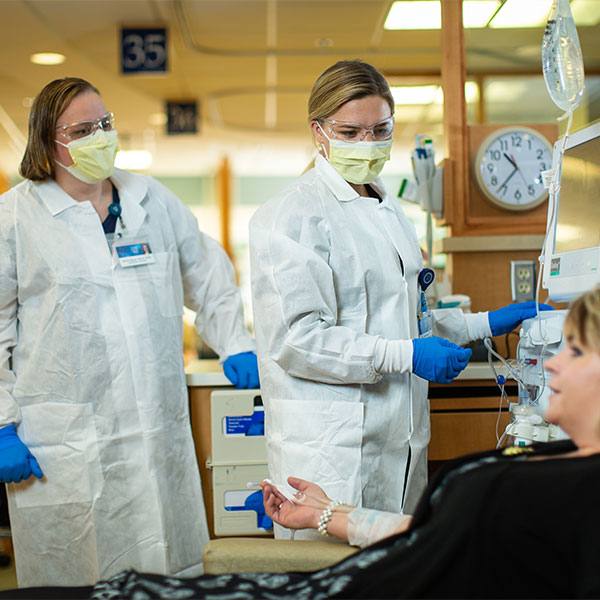-
Biotherapeutics
The importance of individualized regenerative medicine
Individualized screening, guided by artificial intelligence (AI) and biomarkers, can optimize the transformative potential of regenerative medicine, according to a Mayo Clinic study. The paper, published in Biomarkers in Medicine, maintains that using new scientific tools to match the right biotherapeutics to the right patient ushers in the era of achieving tailored regenerative care.
Conversely, without targeted patient selection, biological and genetic differences lead to variable outcomes from regenerative procedures. Some patients are superresponders, while others show limited benefit.
"Determinants separating success from failure in achieving disease rescue has remained largely unknown," says Andre Terzic, M.D., Ph.D., a Mayo Clinic research cardiologist and senior author on the study. "Biological diversity among recipients, unpredictable biotherapeutic efficacy and inconsistent care delivery all underscore recognized challenges in regenerative care. Efforts to upgrade regenerative therapy outcomes are ongoing." Dr. Terzic is the Michael S. and Mary Sue Shannon Director, Mayo Clinic Center for Regenerative Medicine, and the Marriott Family Professor of Cardiovascular Research.
New strategies for applying regenerative medicine
Regenerative medicine is poised to shift the focus from fighting disease to rebuilding health, a priority for Mayo Clinic's Center for Regenerative Medicine. With an emphasis on restoring form and function, regenerative care aspires to deliver new cures for patients in need.
Success may be predicated on identifying the right patients for regenerative therapies. New understanding of underlying causes of disease, together with emerging technologies such as genetic testing and AI, are making it possible to pinpoint candidates who likely will or will not have particularly successful outcomes.
For example, research from the Congestive Heart Failure Cardiopoietic Regenerative Therapy clinical trial, known as CHART-1, found cardioreparative stem cell therapy is safe and benefits patients, especially those with advanced left ventricular enlargement. However, the differing responses have slowed the integration of this new biotherapy into daily clinical care. Prescreening for best candidates could identify which heart patients are likely to best experience therapeutic healing.
"Individualized regenerative therapy is increasingly powered by prescreening of the genetic makeup of each therapy recipient. Notably, carriers of cardiomyopathic variants appear to benefit less from stem cell therapy, encouraging pre-interventional screening to identify best responders in the setting of heart failure management," says Dr. Terzic.
The research also uncovered the need for better understanding of individualized biomarkers to further select suitable candidates for regenerative interventions and to guide precise decisions on care.
"Evolving biomarker-guided individualized diagnosis, targeted repair and artificial intelligence-empowered decision-making have the potential to transform clinical practice and optimize outcomes," says Satsuki Yamada, M.D., Ph.D., first author on the study. "Structural parameters of heart remodeling, namely left ventricular size, appear to predict stem cell effectiveness. Therefore, disease severity stratification may help identify which heart patients are most likely to benefit from stem cell therapy."
Applying patient-ready biotherapeutics, in concert with new, advanced guiding technologies and optimized clinical care plans, could lead to increased consistency in regenerative outcomes, the authors contend. That could advance this new era of restorative health care.
This study is supported by Mayo Clinic's Center for Regenerative Medicine, Marriott Heart Disease Research Program, and the Mayo Clinic Van Cleve Cardiac Regenerative Medicine Program.
Additional authors on the study are Atta Behfar, M.D., Ph.D.; Armin Garmany, a student in the Regenerative Sciences Track of Mayo Clinic Graduate School of Biomedical Sciences, Mayo Clinic Alix School of Medicine; and Ryounghoon Jeon, D.V.M, Ph.D.
###










